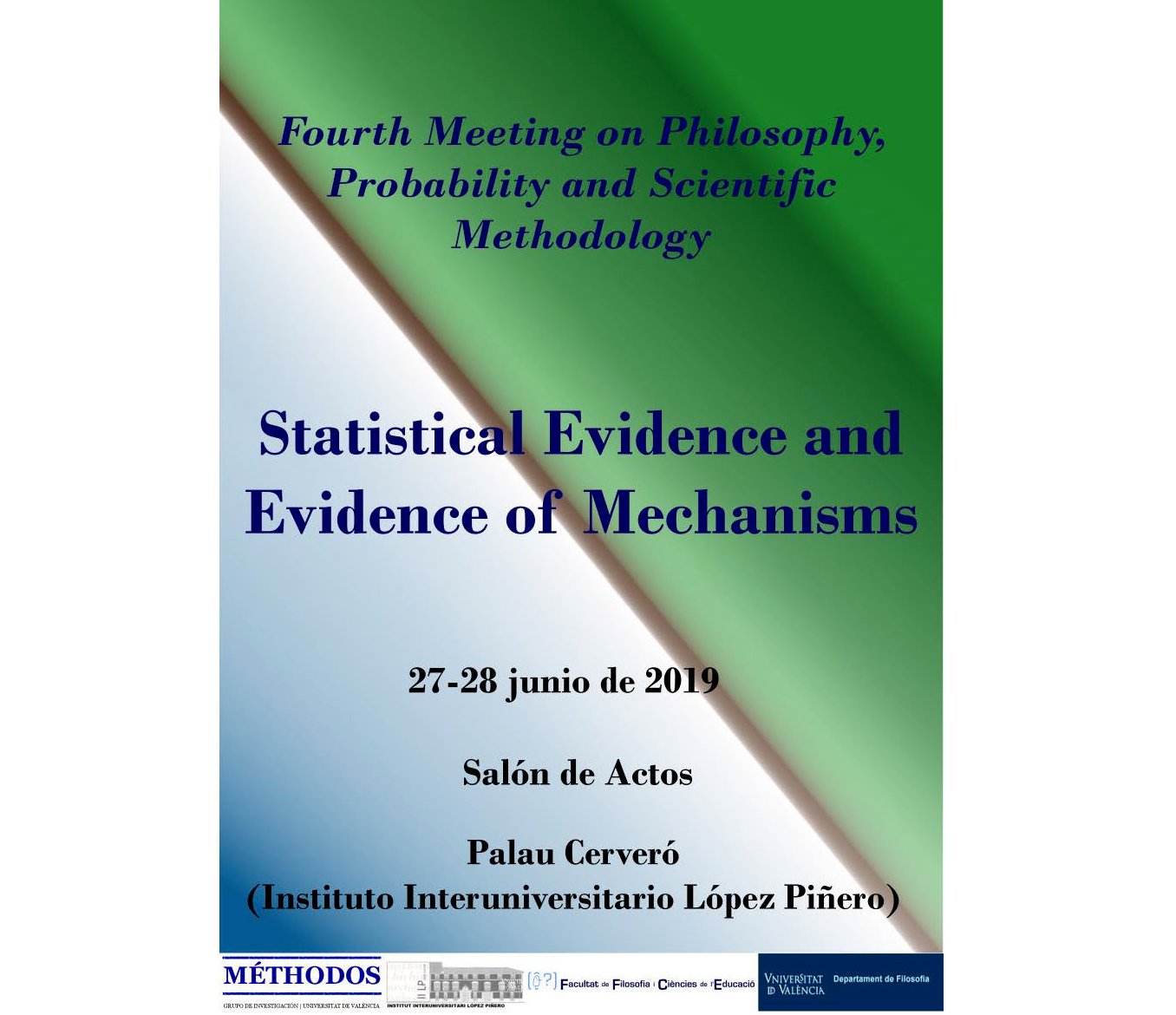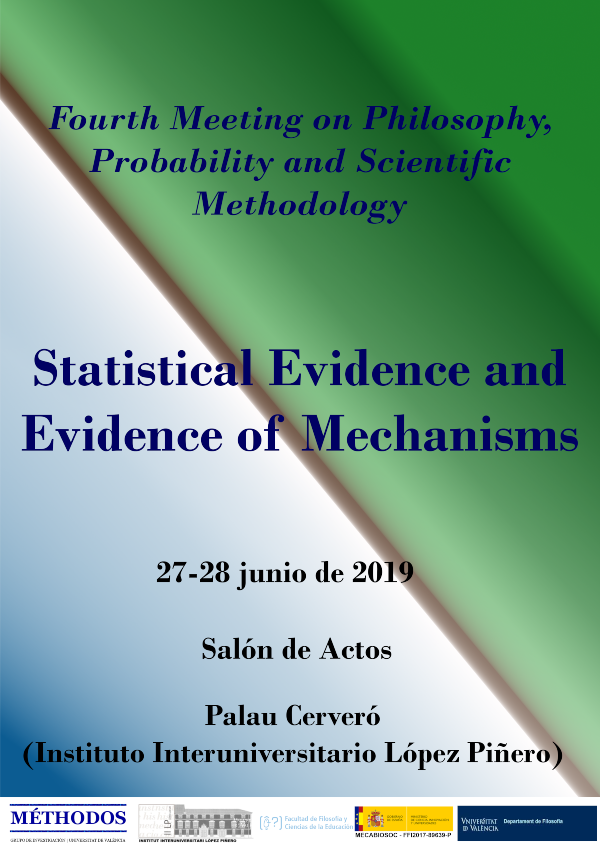
Fecha: días 27 y 28 de junio de 2019
Lugar: Salón de actos del Palacio Cerveró. Instituto Interuniversitario López Piñero.
In philosophy of science, over the last two decades, there has been an intense debate about the notion of mechanism. The mechanistic standpoint was initially suggested to develop a suitable notion of explanation. More recently, a related notion, namely, evidence about mechanisms, is a matter of concern. Scientists gather evidence for hypotheses through multivarious procedures (experiments, case studies, exploratory observations,…). All of them, however, are aimed at providing some reliable information concerning the subject for research. Particularly, statistical evidence provides information about frequencies while mechanistic evidence tell us something about the mechanisms involved in that subject. In principle resorting to one of them does not prevent from resorting to the other. But things seem more complicated in some disciplines. A notorious example is afforded by the standards for evaluating evidence in medicine. According to nowadays most influential evidential hierarchies in medicine, evidence of mechanisms plays just a subsidiary role, if any at all, in contrast to statistical evidence. Hence, “evidence-based medicine”, as it is usually labelled, clearly favours statistical evidence. And there is a parallel contemporary debate on “evidence-based policy” where the main concern is not so much reliable inference, but effective intervention. Again, which sort of evidence should be preferred in order to ensure the effectiveness of those policies is also a matter in dispute. The workshop will be primarily devoted to questions related to these two sorts of evidence:
- are they really different sorts of evidence? could one of them be somehow reduced/defined in terms of the other?
- how could we define “evidence of mechanisms”? should it be understood in different ways according to different scientific fields?
- does “evidence of mechanisms” need a commitment to a particular notion of mechanism?
- which are the respective advantages/limitations of both sorts of evidence? are they complementary? are both necessary in order to support any scientific claims (particularly causal claims)?
- do they play the same role in science (concerned about reliable inference) than in policies (concerned about effective intervention)?
- how should they be located in disciplinary hierarchies of evidence? do they enjoy similar epistemic weight? should we favour any of both in particular circumstances (or in general)?
Descarregar PROGRAMA
Més informació [+]
Comité organizador:
Valeriano Iranzo (Dpto. de Filosofía, Univ. València) iranzov@uv.es
Saúl Pérez (Dpto. de Filosofía, Univ. València) saul.perez@uv.es
María Jiménez Buedo (Dpto. de Lógica, Hist. y Filos. de la Ciencia, UNED, Madrid) mjbuedo@fsof.uned.es
Esta actividad cuenta con financiación del proyecto FFI2017-89639-P.
Coordinación seminarios IILP: Enric Novella (IILP)










